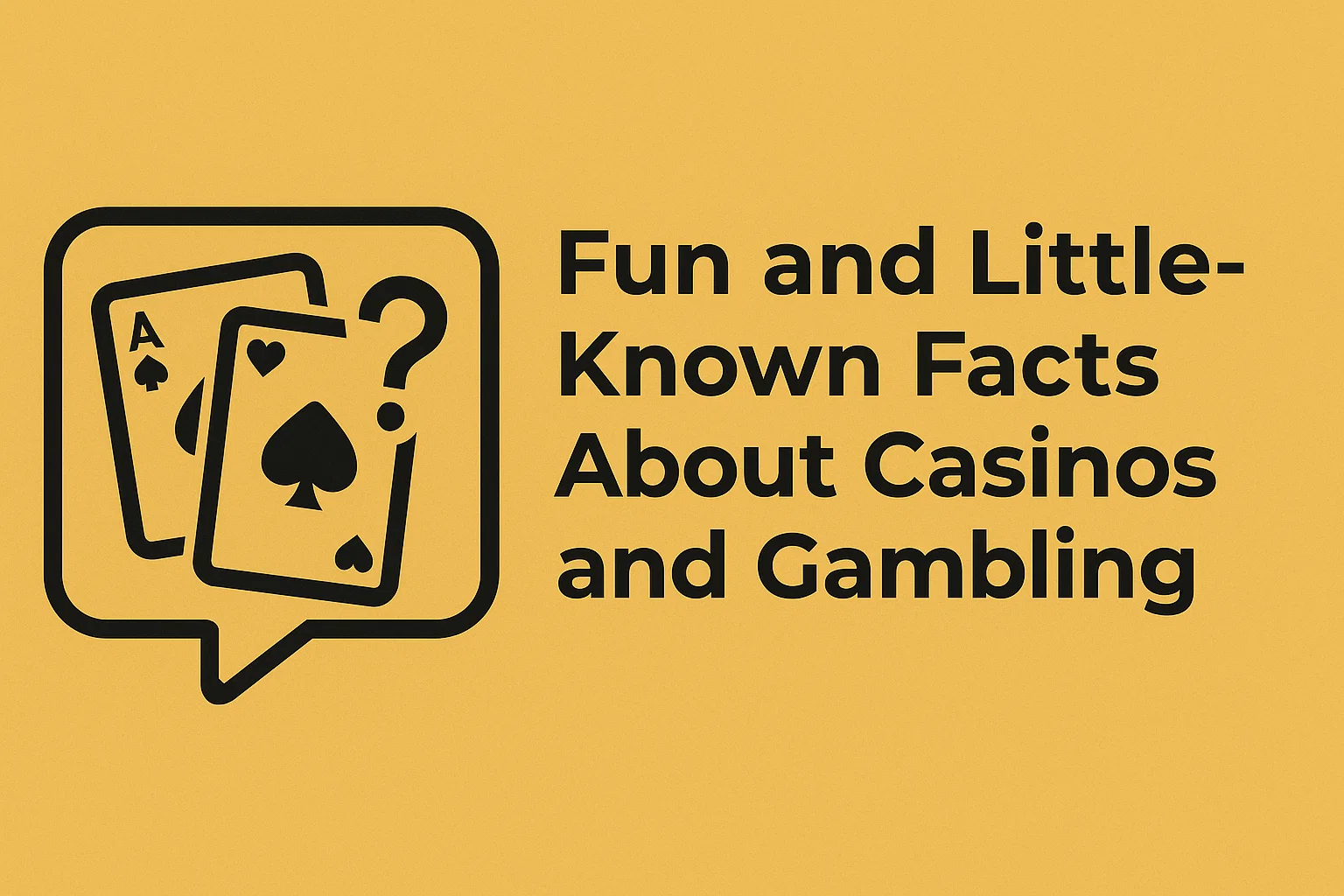Fun and Little-Known Facts About Casinos and Gambling

Risk is a human magnet everywhere. Humans have created ways to make life more exciting since the earliest days of time through contests, games, and raffles. There are so many interesting facts about casinos and gambling through the ages. Now, with internet games and secure mobile casino apps gaining popularity, this centuries-old pastime has taken on a totally new form.
The First Arabic Lottery
Historians still debate what the earliest gambling game was. There were analogous games prior to money being invented, when humans piled up wealth in the form of animals, shells, stones, or even slaves. One of the earliest known games, which was analogous to the modern-day lottery, was called Maisir.
It began in the Middle of the Earth. The game was very straightforward: ten people would jointly buy a camel. The camel was thereafter cut into seven pieces visually — the hump being the most valuable prize, and the hooves the lowest. Ten arrows were labeled, seven with a body part, and three left blank. Each person would take an arrow and receive what is written on it.
Although lotteries and most games of chance are forbidden within the Muslim world, exceptions do exist, especially for Internet games. Unbelievable as it might seem, some Muslims can play the hobby under specific circumstances.
Key takeaway:
- Maisir is among the oldest of the lottery-type games.
- It was established based on dividing real assets, not money.
- Gambling traditions in spite of bans were able to survive.
The Story of Roulette
The actual origin of roulette is unknown. Some claim it first came about in France, others in China. A common belief credits French mathematician Blaise Pascal with its invention. Pascal, experimenting with a ball and wheel in a perpetual motion machine, accidentally built the foundation of roulette in the 17th century.
It is also indicated that Pascal would frequently visit gaming halls to relax from his illness. Such interactions inspired Pascal's early concepts of probability theory — namely, dice throwing. Later, in a bid to take his mind off a toothache, Pascal calculated the probabilities of winning a lottery with 36 tickets. That number — 36 — later became the 36 slot locations in a roulette wheel.
Why Fruit Came onto Slot Machines
The first slot machines displayed playing card suits. But in the late 19th and early 20th centuries, the authorities started enforcing prohibitions. In an attempt to get around prohibition, manufacturers substituted fruit for card symbols: cherries, lemons, oranges, apples. The winning combinations did not dispense cash but chewable gum with corresponding flavors.
Even after prohibition was removed, the fruit symbols were retained, and to this day, they are a characteristic of slot machines.
Common fruit slot symbols that are iconic:
- Cherries
- Lemons
- Oranges
- Apples
The Number 4 in China
The digit 4 in Chinese culture is very unlucky. It has been associated with ill luck and even death, as the pronunciation of 4 is close to "die." The fear, or tetraphobia, is so strong that people will go to extreme means to shun the use of the number. One of the Beijing hospitals had to change its name because nobody wanted to go in for treatment at "Hospital No. 4.".
Chinese casinos also respect the superstition: no 4th floor, and no "No. 4" table. Elevators typically go from the third to the fifth floor, or instead the fourth is labeled as "3A."
Examples of how 4 is avoided:
- No casino or hotel 4th floors.
- Never with "#4" on tables.
- "3A" in place of "4" on buildings.
 Casinos in USA
Casinos in US Whether land-based or online we have that casino
Casinos in USA
Casinos in US Whether land-based or online we have that casino